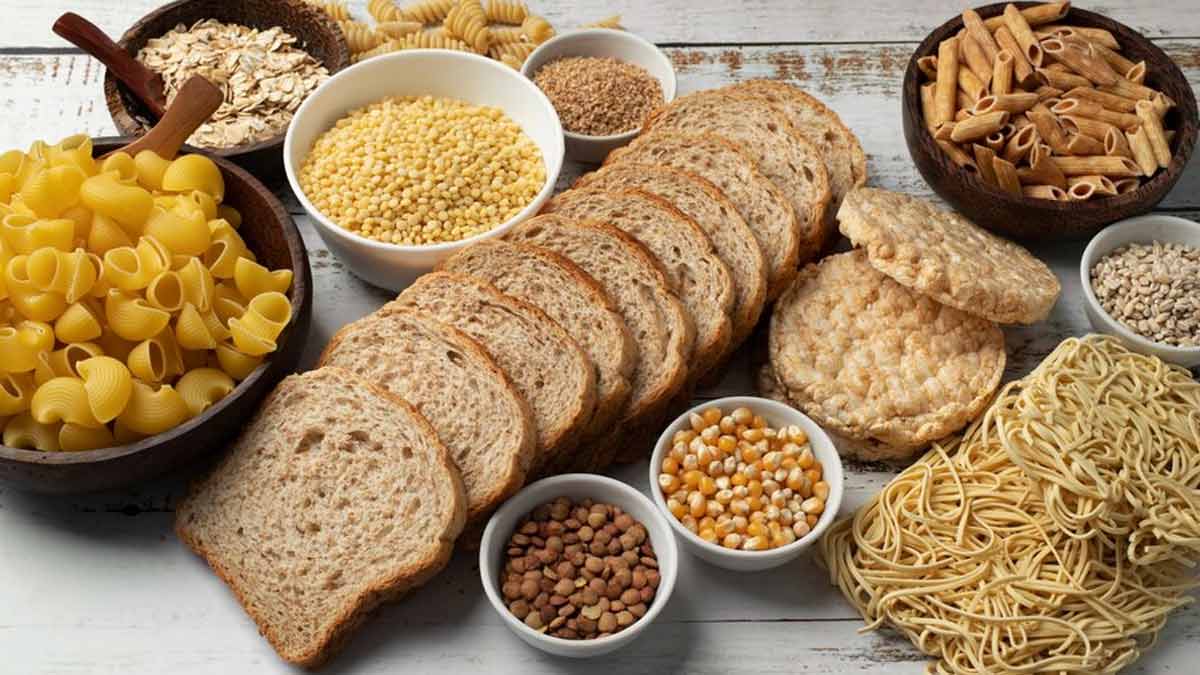
Due to their association with diabetes and unhealthy weight gain, foods rich in carbohydrates have earned themselves a bad reputation. However, before jumping to conclusions, it is important to get all the facts right and clear up any misconceptions that exist around carbohydrates.
Table of Content:-
According to StatsPearl Publishing, carbohydrates, also known as carbs, are one of the three macronutrients in the human diet, the other two being protein and fat. Not only are they a source of energy, but, much to everyone's surprise, they also help control blood glucose and insulin metabolism. If that is the case, why are carbs looked upon as dietary demons? In an interaction with the OnlyMyHealth team, Dr Sushma Kumari, Dietician, CARE Hospitals, Banjara Hills, Hyderabad, debunked some myths that could be to blame.
Also Read: Carbohydrates Are Not All Bad: 11 Good Carbs Options For You
Myth 1: Carbohydrates Are Inherently Unhealthy

The truth about carbohydrates is that they are not inherently unhealthy. This means that they are not naturally bad for the body. Dr Kumari said, “The key is to choose complex carbohydrates, monitor portion sizes, and maintain a well-rounded diet to support overall health and well-being.” Complex carbs are foods that take longer for the body to digest and are less likely to cause spikes in blood sugar. These include whole grains, fruits, vegetables, and legumes that provide essential nutrients, fibre, and energy necessary for a healthy diet.
Myth 2: Carbohydrates Cause Weight Gain
It is not essentially carbs that cause weight gain; rather, the overconsumption of calories, regardless of their source, is what leads to weight gain. Carbohydrates can be part of a balanced diet, and choosing complex carbohydrates like whole grains can help regulate appetite and support weight management.
A study published in the British Medical Journal (BMJ) found that increased consumption of carbohydrates derived from whole grains, fruits, and non-starchy vegetables showed a negative correlation with weight gain. On the other hand, an elevated intake of carbohydrates from refined grains and starchy vegetables such as peas, corn, and potatoes exhibited a positive association with weight gain.
Myth 3: All Carbohydrates Are The Same

It is important to note that carbohydrates can be categorised into simple and complex carbs. While simple carbs (sugars) can cause rapid spikes in blood sugar, complex carbs, which include starches and fibre, release energy more slowly and provide sustained energy. It's essential to choose complex carbs for better health.
Myth 4: Low-Carb Diets Are The Only Way To Be Healthy
Dr Kumari said, “Low-carb diets may be effective for some people, especially those with specific medical conditions. However, a well-balanced diet that includes carbohydrates is generally recommended for most individuals.”
Myth 5: All Carbohydrates Are Bad For People With Diabetes
Foods containing carbohydrates convert into glucose or blood sugar when digested, which is why diabetes patients need to be mindful of their carb consumption. But not all carbs are equal, said Dr Kumari. “People with diabetes should focus on complex carbohydrates, monitor their blood sugar levels, and work with healthcare professionals to develop a personalised eating plan,” she added.
Also Read: Can You Eat Carbs If You Have Diabetes? Expert Answers
What Are The Main Functions Of Carbohydrates?

Carbohydrates serve several critical functions in maintaining overall health:
- Carbs are the body's primary source of energy; glucose is a type of carbohydrate that fuels brain function and powers physical activities.
- The brain relies on glucose for energy, which is why a lack of carbohydrates can lead to cognitive impairment and fatigue.
- Carbohydrates from fruits, vegetables, and whole grains provide essential dietary fibre, which supports digestive health and helps prevent constipation.
- Carbohydrates can help transport essential nutrients into the cells, ensuring the body's proper functioning.
- Complex carbohydrates with fibre help regulate blood sugar levels by slowing down the absorption of glucose, reducing the risk of blood sugar spikes and crashes.
- Including complex carbs in your diet can help you feel full and satisfied, reducing the tendency to overeat and aiding in weight management.
Conclusion
Carbohydrates are an essential part of our diet, and irrespective of whether you’re diabetic or not, some amount of this macronutrient is important for the healthy functioning of the body. The key is to choose the right kind of carbs, which are complex carbohydrates present in whole grains, fruits, vegetables, and legumes. In addition, indulging in portion control and eating mindfully are some of the habits that you should adopt. However, if you have any health conditions, it is best to consult with a healthcare professional to discuss your diet plan.
Also watch this video
How we keep this article up to date:
We work with experts and keep a close eye on the latest in health and wellness. Whenever there is a new research or helpful information, we update our articles with accurate and useful advice.
Current Version